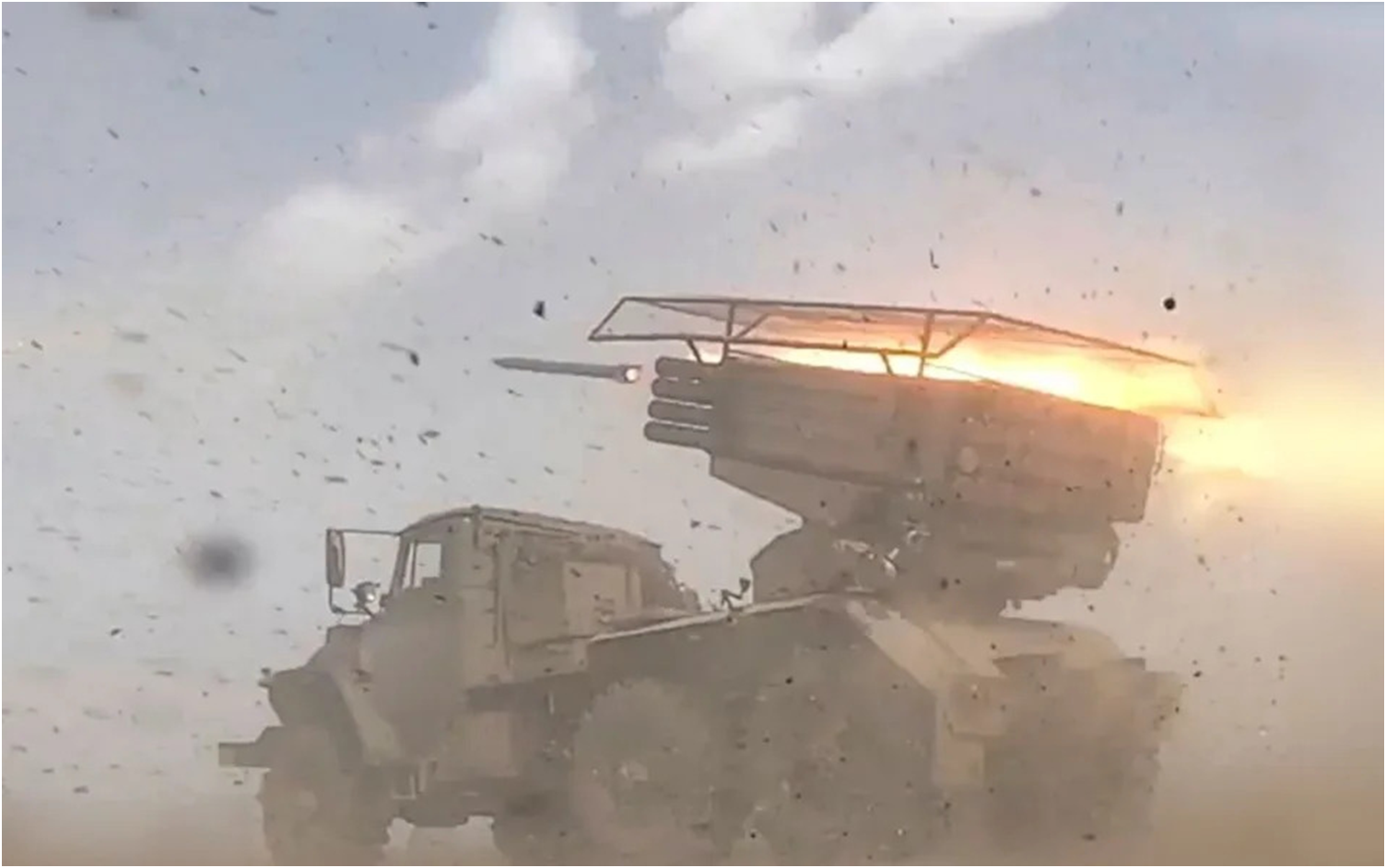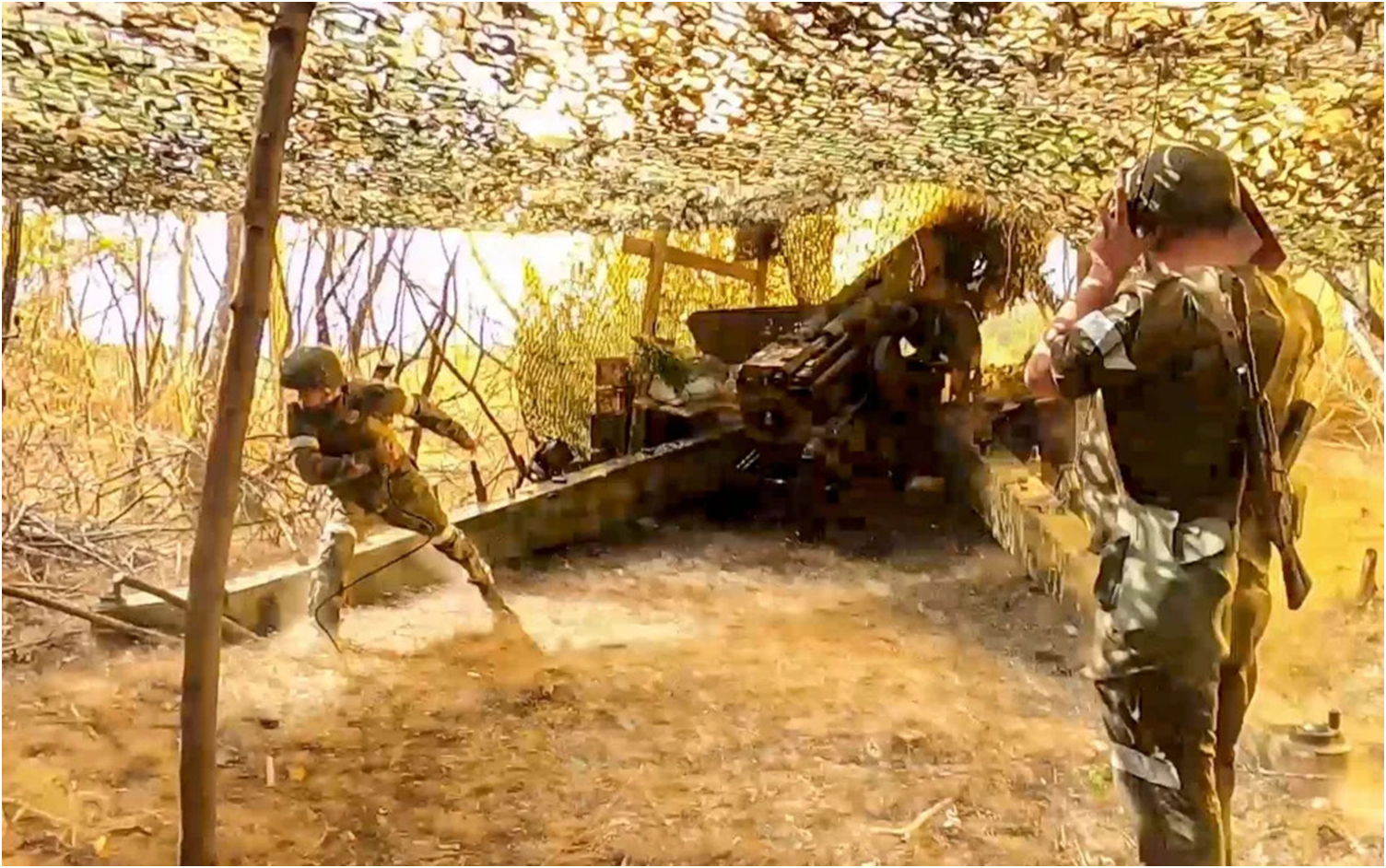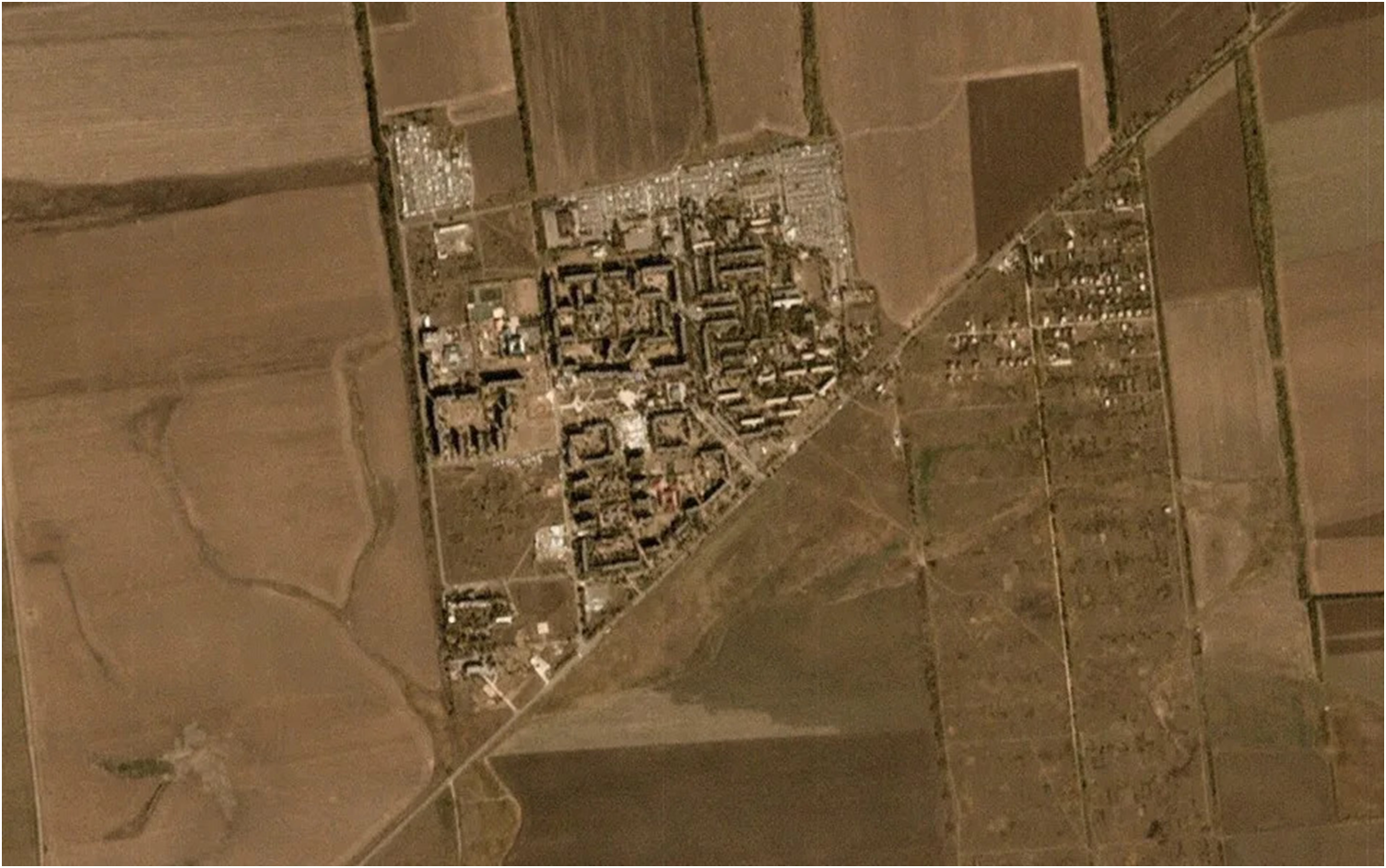
An aerial view of Vuhledar on Dec 14 2023, shortly after a failed Russian assault - Libkos/Getty
The Telegraph: Russian troops have raised their national flag – and the Soviet victory banner – on buildings in the frontline Ukrainian town of Vuhledar.
Volodymyr Zelensky has reportedly ordered the retreat of his badly mauled Ukrainian forces from a town once considered an impregnable “fortress” for Ukraine.
But Russian military bloggers said the withdrawal came too late, as the town was already surrounded by Kremlin troops.
“Currently, the town of Vuhledar is being liberated from scattered groups of Ukrainian Nazis,” said one Russian account. “The suppression of the last resistance in the northern outskirts of the city is underway.”
The claims were supported by Ukrainian military bloggers, who said they had authenticated videos of Russian soldiers raising their flags on ruined buildings across Vuhledar.
Alongside modern Russian flags, Moscow’s troops have made extensive use of Soviet-era symbols during the war in Ukraine.
Other reports described Ukrainian soldiers trying to fight their way out of the surrounded town in small groups, leaving wounded comrades and equipment behind.
Significant victory
Although Vuhledar now lies in ruins, its Soviet-era apartment blocks shattered and its trees reduced to burnt stumps, its capture is Vladimir Putin’s most significant battlefield victory since his forces took control of Avdiivka in February.
Vuhledar sits on high ground above an important east-west road, which could be used as a launchpad to attack other Ukrainian military transport hubs to the west.
Analysts said victory in Vuhledar would be seen as a vindication of Russia’s grinding mass-infantry tactics, which have brought steady gains along the front line, at great cost, over the past 12 months.
Putin has not yet commented on the capture of Vuhledar but Dmitry Peskov, his press secretary, said he was monitoring the battle personally and was anxious for news that his forces had conquered the town.

A Russian defence ministry image shows a rocket launcher in action - Shutterstock

An image from the Russian defence ministry shows Russian troops attacking Ukraine - Shutterstock
“We are waiting for official information from the ministry of defence,” Mr Peskov said.
Russian forces had been trying to capture Vuhledar, on the southern side of the front line running through Ukraine’s eastern Donbas region, since the start of the war but had been repulsed by stubborn resistance, mainly from Ukraine’s 72nd Brigade.
The 72nd Brigade is regarded as one of the toughest Ukrainian fighting units and is known as “The Black Zaporozhians”.
Russian failures to take Vuhledar in 2022 and 2023 resulted in several humiliating setbacks and in April 2023 prompted the Kremlin to fire Col Gen Rustam Muradov, commander of the eastern district forces – one of the most senior sackings of the war.
In November 2023, Russia’s 155th Marine Brigade, usually based 5,500 miles away in Vladivostok on Russia’s Pacific coast, was ambushed near Vuhledar and suffered up to 1,000 soldiers killed.

A satellite view of Vuhledar, taken in 2019, shows its position on an important main road - Planet Labs Inc/Reuters
Russian forces regrouped and in May and June this year launched another series of attacks with more troops, artillery and glide bombs.
By the start of September, after what soldiers from the 72nd Brigade described as some of the “most intense” bombardments they had experienced, Russian soldiers reached the eastern edge of the town.
With Ukrainian forces overstretched across the front line, Ukrainian commanders in Vuhledar complained that they also lacked enough air power to push back Russian forces.
By last weekend, it appears that senior Ukrainian commanders knew that the battle was lost. They pulled the commander of the 72nd Brigade out of the besieged city and then gave the order for units to retreat or surrender.












Leave a review